#the private life of dante gabriel rossetti
Text









Dante's Inferno (1967)
32 notes
·
View notes
Text
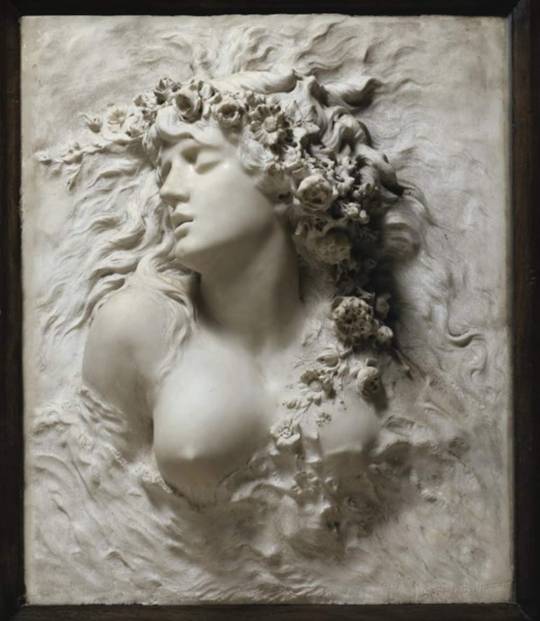
Sarah Bernhardt (French, 1844-1923), Ofelia (or The Death of Ophelia), 1880, white marble, private collection, Normandy.
The author of this dignified sculpture is the worldwide known actress Sarah Bernhardt, who delighted in sculpting marble, when she did not act on the stages of half the world. She began by opening her own studio in 1873 and creating works also exhibited at the Paris Salon and in London, where she was equally famous as a theatrical actress. The most ferocious criticism that was moved on her life was that she used to work on her sculptures dressed in a white pantsuit, clothing considered scandalous for a woman of the late 1800’s (the painter Rosa Bonheur had to ask for a special permission to go to the horse fairs wearing pants, not to dirty the long clothes).
The sculpture is a high relief depicting Ophelia, with her head turned to the side and eyes closed. She only wears a wreath of flowers on her head that goes down to partially cover her bare breasts. She seems to float on the water that moves her hair but, soon, poor Ofelia will drown (famous the painting by John Everett Millais, whose model was Elisabeth Siddal, future wife of Dante Gabriel Rossetti). Only in 1886, 6 years after the realization of this sculpture, did Bernhardt finally receive the honor of reciting in Hamlet, but she didn''t play the female role of Ophelia, but the male role of the protagonist Hamlet.
Once finished, Sarah Bernhardt took her high relief on tour in the United States, unwilling to part with her, and she presented it at the 1881 Paris Salon, where she received an honorable mention from the jury.
143 notes
·
View notes
Text
A September to Remember: 7 Must-See Art Exhibitions!

This September, art lovers will be spoilt for choice with a wide variety of exhibitions to choose from. From the Pre-Raphaelites to Picasso, there is something for everyone. Here are seven of the most exciting exhibitions to look out for:
The Rossettis at Tate Modern, London (until January 2024)
This exhibition explores the work of Dante Gabriel Rossetti and his sister Christina, two of the most important figures in the Pre-Raphaelite movement. The exhibition features over 100 paintings, drawings, and watercolors from the Tate's collection, as well as loans from other museums and private collections.
When the Apple Ripens: Peter Howson at 65 at Tate Modern, London (until October 2023)
This exhibition celebrates the work of Scottish painter Peter Howson, who is known for his figurative paintings that often explore themes of violence and poverty. The exhibition features over 50 paintings, drawings, and sculptures from Howson's career, including some of his most famous works such as "The Drummer" and "The Supper at Emmaus".
Paul McCartney: Photographs 1963-64 at Tate Modern, London (until September 2023)
This exhibition features a selection of photographs taken by Paul McCartney during the early years of the Beatles. The exhibition includes photographs of the band, their friends, and their surroundings, as well as McCartney's own personal photographs.
Georgia O'Keeffe: To See Takes Time at the Museum of Modern Art (MoMA), New York (until January 2024)
This exhibition is the first major retrospective of O'Keeffe's work in over 20 years. It features over 200 paintings, sculptures, and drawings from throughout her career, tracing her development as an artist from her early abstract paintings to her iconic flower paintings.
Picasso: Guitars at the Museum of Modern Art (MoMA), New York (until September 2023)
This exhibition explores Picasso's lifelong fascination with the guitar. It features over 50 paintings, sculptures, and works on paper from the MoMA's collection, as well as loans from other museums and private collections. The exhibition shows how Picasso used the guitar as a symbol of creativity, passion, and desire.
Henri Matisse: The Dance at the Museum of Modern Art (MoMA), New York (until September 2023)
This exhibition celebrates the centenary of Matisse's iconic painting "The Dance". It features over 60 works by Matisse, including paintings, sculptures, and drawings. The exhibition shows how Matisse used dance as a way to express joy, movement, and life.
Célébration Picasso, La Collection prend des couleurs! at the Musée Picasso, Paris (until September 2023)
This exhibition celebrates the 50th anniversary of Picasso's death. It features over 200 paintings, sculptures, and drawings from the museum's collection. The exhibition shows the diversity of Picasso's work, from his early Cubist paintings to his later abstract works.
Read the full article
0 notes
Photo

#Repost @the.art.diary “Stitching the Standard” is a 1911 painting by Edmund Blair Leighton. Edmund Blair Leighton was born in London in 1853, the only son of painter Charles Blair Leighton and Catherine Boosey and no relation to the other great painter, Frederick Leighton. At the time of Edmund’s birth, the Blair Leightons lived at Red Lion Square, the former residence of Dante Gabriel Rossetti and Walter Deverell, and four years later William Morris moved into the square. In this environment he was raised surrounded by artists and men of position and undoubtedly would have trained in his own father's studio. Unfortunately, the early death of his father, aged thirty-two, prevented this. Edmund was placed in a private boarding school in St. John's Wood and later went to the University College School. He was encouraged to put all hope of becoming an artist firmly behind him and look towards a mercantile career. Although he worked during the day in the City, in the evenings he attended classes at the South Kensington School of Art and at Heatherley's School of Painting where many artists founded their reputations. At the age of twenty-one Edmund left his office job and launched himself into the art world with great resolve and self-belief and in 1874 he was accepted as a Student at the Royal Academy Schools where he excelled. He first exhibited at the Royal Academy in 1878 and he continued to exhibit paintings with literary titles, usually with a highly romantic charge. This 1911 painting encapsulates the spirit of Pre-Raphaelitism in its later phase, in the years before WWI when life was more innocent and untarnished by the horrors of war. Romance, meticulous draughtsmanship and beauty above all else, are the hallmarks of the late Pre-Raphaelite movement of which Edmund Blair Leighton was a leading light. Painted a generation after Rossetti and Millais revived interest in chivalric tales of heroic knights, damsels in distress, romantic bards and mournful kings, Blair Leighton interpreted the same subjects without any loss of intensity. Caption by @d.g.rossetti ✨ 𝐉𝐨𝐢𝐧 𝐨𝐮𝐫 𝐚𝐫𝐭 𝐜𝐨𝐦𝐦𝐮𝐧𝐢𝐭𝐲 @the.art.diary ✨ • • #painting🎨 #painting #paint #pa https://www.instagram.com/p/CpHzz5GoSc5/?igshid=NGJjMDIxMWI=
1 note
·
View note
Text
Aidan Turner on becoming a dad and his new drama, The Suspect

Three years on from Poldark, the actor wants less scything and more nuance in his roles — and has found it in a new ITV series
The man who for four pectoral-perfect years was Poldark is recalling the moment he felt he had arrived as an actor. Aidan Turner was 27, perhaps 28, and playing both an accidentally lethal vampire in BBC3's Being Human and the more deliberately dangerous Dante Gabriel Rossetti in BBC2's Desperate Romantics. His career was going so well that he rented his first place in London, a flat above Mornington Crescent station.
"I was chuffed with myself. It was the coolest thing, hanging out with cool actors and going to bars and trying to live this hedonistic lifestyle that the artists were living. And I still had the energy every morning to go to work."
I hope, I say, he realises that is all over, now that he is a father.
"Oh, yeah. I don't go out at all any more. I'll be home by nine o'clock or in deep trouble for sure. Hangovers just aren't worth it these days."
Turner, who is a Dubliner and off-screen sounds like one, married the American actress Caitlin Fitzgerald in Italy a year ago. They had met on what was, for almost everyone apart from them, a forgettable low-budget 2018 film, The Man Who Killed Hitler and Then the Bigfoot. Earlier this year, Fitzgerald gave birth, although Turner, who some time ago made the decision not to talk about his private life (it seems to have involved a healthy number of girlfriends but no scandal), asks me not even to disclose the baby's sex. All we know is that he or she is not one of babyland's great sleepers.
"The sleepless nights are a real thing. There's a huge shift for sure. I think every man will understand what I mean by that," he says. Ross Poldark, I point out, was a father, but not even his most adoring fan would accuse him of being hands-on.' "Hardly does anything! He goes to the kitchen, grabs a chunk of bread, then he's up on a horse and he's off again, getting involved in somebody else's business."
Turner is not only a father but also 39 years old. I wonder if he feels grown up. He deftly diverts the question towards his new series, his first for IT V, a psychological thriller - about a psychologist - called The Suspect (and not to be confused with Channel 4's recently derided Suspect starring his Hobbit co-star James Nesbitt).
"Certainly The Suspect feels like a very grown-up role for me and the genre and the tone of the piece too feels like I've sort of broken into a different place," he says in the Soho Hotel in central London before its press screening.
"The scripts that are coming in now, they tend to be like that. Maybe it's being a dad, maybe it's just being that bit older, but there has been a shift of late,which is great."
In The Suspect he plays Joe O'Loughlin, who may or may not have killed a former patient. The five-parter keeps us guessing. Withholding the truth from the viewer, while being true to Joe's character, was not as hard as you might think, he says. Joe could be a murderer, he is certainly flawed.
"That's what I loved about the character: he's complicated. We do these things in life we regret." We're all guilty of something, I offer. "We're all guilty of something," he agrees.
Just as he read Winston Graham's Poldark novels before playing their hero, Turner did due research for Joe. He met a forensic elinical psychologist, Dr Robert Lambert-Simpson, who had worked with dangerous criminals and recommended that Turner master a therapist's empathetic but noncommittal grunt. Joe has been diagnosed with Parkinson's and Turner discussed the condition with Drew Hallam, the same age as him but diagnosed with the disease when he was 35. The point Hallam made was that although he knew Parkinson's would not kill him, he also knew he would die with it. In finding Joe's character, Turner says, Hallam was more helpful than any of the books he read.
Despite the telltale tremor in Joe's hand, the series nevertheless opens with him climbing out of a multi storey building to talk down a suicidal young man about to throw himself off. Turner shot the scene in a film lot and was two, rather than 25, floors up. "But I was dangled pretty high and I'm not good with heights and those gasps and screams are real. I was terrified.'
Did he enjoy playing vulnerability? "That's what I loved about Joe too. He's not just this heroic protagonist who is there to be the stock character we've seen 100 times before - and that I've played 100 times before."
I wasn't going to say it."But that's what really attracted me to him. It doesn't feel cookie cutter and that's where I'm trying to go now with things, roles where there's more layers and it's more complicated and more dense. It just feels right. I had my own accent for this too, which was really interesting. It felt really grounded for the character. And I had a beard, which is what I usually wear. It was closer to me."
It is nevertheless undeniable that Captain Ross Poldark remains the role of his career so far and that Turner brought to it, as well as his beauty, tremendous patrician authority, for which he fielded a more or less RP English accent. But Poldark was not really a complex man. He made mistakes, but they came from the heart - or, at least, the nether regions. I mention the last episode of the fifth and final season three years ago. It was hardly a surprise to learn that Ross was neither cheating on his wife, Demelza, nor collaborating with the French enemy.
A similar lack of nuance doomed Leonardo, last year's eight-part Euro-pudding of a bio-drama shown on Sky. Turner as the Renaissance painter again played a man of passionate virtue, again asserted in public-school English. The artist was trapped in a murder plot but who doubted his innocence? The Guardian called Leonardo "awful"; our own Hugo Rifkind deemed it "not dreadful". It has not, despite what fans may have read, been renewed. "It did get kicked around in the press a little bit. I had no qualms about that. It was a fear I had going in and discussions we had about where the narrative might go, but it was always going to be difficult when you try to change history on a TV show. And there's no need. He has a very, very interesting life, Leonardo, we don't need to fictionalise elements of it, I don't think."
Could it have been done without a murder? "Of course it could. There was no need for it." His sexuality is interesting enough? "Exactly. And we covered some of that in Leonardo. I think we could have gone further with that."
Next he will star in Fifteen-Love, a new drama for Amazon, in which he plays a maverick tennis coach. Ella Lily Hyland plays his star prodigy who makes an explosive allegation against him.
"It's worth waiting for the right thing," he says. "I have a child and I don't want to work as much and I really only want to do the work that I'm passionate about and thankfully there's stuff around for me.
"I've done a lot of costume drama and supernatural shows or science fiction and that kind of thing. I've kind of done that for now. More contemporary pieces, especially a psychological thriller like The Suspect- these are shows that I really watch."
The Suspect has a habit of scrutinising Turner's face in intense close-up. In the flesh, with only a light beard, he looks hardly older than when I met him eight years ago in the West Country filming the initial series of Poldark - neither of us, poor fools, guessing at the phenomenon it would become. On screen now with a much heavier beard, and with the creases round his eyes somehow accentuated, he looks tons older and scarcely recognisable. Perhaps that was the idea of the beard.
"You do feel quite hidden. There is a veil there. And for me as well. I think maybe one time in 18 months I got recognised with the beard also adopted for Leonardo. The day I shaved it off, it happened three or four times in town.
How much does he hate that? "I don't hate it. People have only ever been really, really kind, really lovely. And it's only ever fans. I don't love it because
I'd like to not be noticed and I think a lot of actors too quite enjoy people- watching and observing and that goes out the window if you're getting recognised. People are locking eyes with you. It just feels unsettling. It feels a bit creepy."
Is the attention all from women? "Is it all women? Mostly. Mostly, is the accurate answer. At the height of his torso's scythe-waving fame did he feel objectified? "No, I didn't. I mean, I know it's different for a young guy to show up in some of those photographs or that kind of show, and have that kind of press, in comparison to it happening to a young girl. It's a different thing. I don't fear for my safety when I walk around. My demographic for Poldark was more women."
At the height of his torso's scythe-waving fame did he feel objectified? "No, I didn't. I mean, I know it's different for a young guy to show up in some of those photographs or that kind of show, and have that kind of press, in comparison to it happening to a young girl. It's a different thing. I don't fear for my safety when I walk around. My demographic for Poldark was more women."
I have it on good authority that when he played in Martin McDonagh's The Lieutenant of Inishmore in the West End in 2018 female audience members would gasp just at the sight of his bare arms. "There was a bit of that. Some nights you'd hear comments. But then very quickly it would calm down. But that was fun. I mean, every time I do theatre, I just want to do more theatre."
Turner talks so comfortably it is hard to imagine him as a shy child growing up in Dublin, the son of an electrician father and an accountant mother. Although he spent eight childhood years competing at ballroom dancing - he reached international level - the shyness endured, he says, until he went to the Gaiety School of Acting in Dublin, where his confidence grew "quite quickly". He left and landed a role in a primetime RTE medical drama. Barely four years later, via the vampire and his first great painter, he was in New Zealand filming The Hobbit trilogy for Peter Jackson.
And rather than his typical alpha male roles, he played a small man. "They shrank us. I played a dwarf on that one. But got away with not wearing yak hair beards, which is what a lot of the other guys were wearing."
The only thing he has not done - or not done enough - is comedy, and he is very good at it. On Toast of Tinseltown this year he played Uncle Barney, a lunatic cowboy in pursuit of a rattlesnake. His sibilant, ten-second assault on the word "message" stole a scene clean away from Matt Berry. Perhaps, he muses, another comedy, like The Lieutenant of Inishmore, should be his return to the stage.
If he is missing solemn old Captain Ross, he must be doing it at a level it would take Joe O'Loughlin to uncover. He does, he will concede, miss riding Poldark's Co Wexford horse, Seamus, but mostly he is missing his child and his wife. Fitzgerald has just left for New York where she is shooting a movie. "It is hard. It's the first time. She's only been gone a couple of days. So yeah, it's difficult, but I'm busy: keeping busy is definitely a good thing for me while they're away."
A decade on from landing in London, Turner now has the luxury of choosing to keep busy or not. Now, that must be what "arriving" really means. The Suspect will be on ITV and the ITV Hub later this month. X
66 notes
·
View notes
Text
Elizabeth Siddel Part 3
Since there is a tendency to focus on the supernatural elements associated with Siddal, she is commonly viewed as a ghostly figure more than a real woman. As this sort of shadow figure, it becomes easy to project rumor and myth onto her and accept them as true.
One of the ideas that persists is that she was the inspiration for the character of Lucy Westenra in Bram Stoker’s Dracula. Some even take it so far as to claim that Stoker was present at Siddal’s exhumation, an impossibility since when the deed took place Stoker was twenty-two and still a student living in Dublin.Bram Stoker lived in the same neighborhood as Rossetti and he was a friend of Hall Caine, who at one time was Rossetti’s secretary. Stoker dedicated Dracula to Caine, with a nickname used by Caine’s grandmother (“to my dear friend Hommy-Beg”). Stoker may not have included the story of Siddal’s exhumation in his notes, but due to his closeness with Caine he had to have heard an account of it at some point and he had probably read Caine’s book Recollections of Dante Gabriel Rossetti (1882).
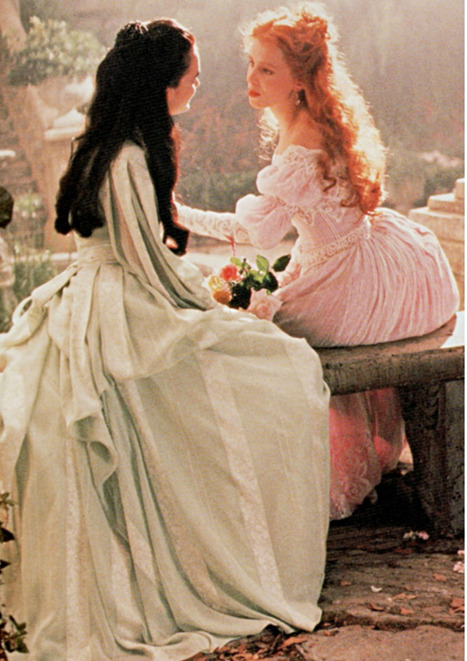
The belief that Stoker used Siddal as inspiration is bolstered by his 1892 short story The Secret of the Growing Gold. The ‘growing gold’ is the hair of a dead woman, the very tresses that had been her most striking feature in life. Her hair grows persistently and with a purpose; her intent is to haunt her husband and avenge her own death. The similarity between Stoker’s story and the claim that Siddal’s hair continued to grow and fill her coffin after death is unlikely to be a coincidence.
The Secret of the Growing Gold
By Bram Stoker
When Margaret Delandre went to live at Brent's Rock the whole
neighbourhood awoke to the pleasure of an entirely new scandal.
Scandals in connection with either the Delandre family or the
Brents of Brent's Rock, were not few; and if the secret history of
the county had been written in full both names would have been
found well represented. It is true that the status of each was so
different that they might have belonged to different continents-or
to different worlds for the matter of that-for hitherto their orbits
had never crossed. The Brents were accorded by the whole section of
the country an unique social dominance, and had ever held themselves
as high above the yeoman class to which Margaret Delandre belonged,
as a blue-blooded Spanish hidalgo out-tops his peasant tenantry.
The Delandres had an ancient record and were proud of it in their
way as the Brents were of theirs. But the family had never risen
above yeomanry; and although they had been once well-to-do in the
good old times of foreign wars and protection, their fortunes had
withered under the scorching of the free trade sun and the "piping
times of peace." They had, as the elder members used to assert,
"stuck to the land," with the result that they had taken root in it,
body and soul. In fact, they, having chosen the life of vegetables,
had flourished as vegetation does-blossomed and thrived in the good
season and suffered in the bad. Their holding, Dander's Croft, seemed
to have been worked out, and to be typical of the family which had
inhabited it. The latter had declined generation after generation,
sending out now and again some abortive shoot of unsatisfied energy
in the shape of a soldier or sailor, who had worked his way to the
minor grades of the services and had there stopped, cut short either
from unheeding gallantry in action or from that destroying cause to
men without breeding or youthful care-the recognition of a position
above them which they feel unfitted to fill. So, little by little,
the family dropped lower and lower, the men brooding and dissatisfied,
and drinking themselves into the grave, the women drudging at home,
or marrying beneath them-or worse. In process of time all disappeared,
leaving only two in the Croft, Wykham Delandre and his sister Margaret.
The man and woman seemed to have inherited in masculine and feminine
form respectively the evil tendency of their race, sharing in common
the principles, though manifesting them in different ways, of sullen
passion, voluptuousness and recklessness.
The history of the Brents had been something similar, but showing
the causes of decadence in their aristocratic and not their plebeian
forms. They, too, had sent their shoots to the wars; but their
positions had been different, and they had often attained honour-for
without flaw they were gallant, and brave deeds were done by them
before the selfish dissipation which marked them had sapped their
vigour.
The present head of the family-if family it could now be called
when one remained of the direct line-was Geoffrey Brent. He was
almost a type of a worn-out race, manifesting in some ways its
most brilliant qualities, and in others its utter degradation. He
might be fairly compared with some of those antique Italian nobles
whom the painters have preserved to us with their courage, their
unscrupulousness, their refinement of lust and cruelty-the voluptuary
actual with the fiend potential. He was certainly handsome, with that
dark, aquiline, commanding beauty which women so generally recognise
as dominant. With men he was distant and cold; but such a bearing
never deters womankind. The inscrutable laws of sex have so arranged
that even a timid woman is not afraid of a fierce and haughty man.
And so it was that there was hardly a woman of any kind or degree,
who lived within view of Brent's Rock, who did not cherish some form
of secret admiration for the handsome wastrel. The category was a
wide one, for Brent's Rock rose up steeply from the midst of a level
region and for a circuit of a hundred miles it lay on the horizon,
with its high old towers and steep roofs cutting the level edge of
wood and hamlet, and far-scattered mansions.
So long as Geoffrey Brent confined his dissipations to London and
Paris and Vienna-anywhere out of sight and sound of his home-opinion
was silent. It is easy to listen to far off echoes unmoved, and we
can treat them with disbelief, or scorn, or disdain, or whatever
attitude of coldness may suit our purpose. But when the scandal came
close to home it was another matter; and the feelings of independence
and integrity which is in people of every community which is not
utterly spoiled, asserted itself and demanded that condemnation
should be expressed. Still there was a certain reticence in all, and
no more notice was taken of the existing facts than was absolutely
necessary. Margaret Delandre bore herself so fearlessly and so
openly-she accepted her position as the justified companion of
Geoffrey Brent so naturally that people came to believe that she
was secretly married to him, and therefore thought it wiser to hold
their tongues lest time should justify her and also make her an
active enemy.
The one person who, by his interference, could have settled all
doubts was debarred by circumstances from interfering in the matter.
Wykham Delandre had quarrelled with his sister-or perhaps it was
that she had quarrelled with him-and they were on terms not merely
of armed neutrality but of bitter hatred. The quarrel had been
antecedent to Margaret going to Brent's Rock. She and Wykham had
almost come to blows. There had certainly been threats on one side
and on the other; and in the end Wykham overcome with passion, had
ordered his sister to leave his house. She had risen straightway,
and, without waiting to pack up even her own personal belongings,
had walked out of the house. On the threshold she had paused for a
moment to hurl a bitter threat at Wykham that he would rue in shame
and despair to the last hour of his life his act of that day. Some
weeks had since passed; and it was understood in the neighbourhood
that Margaret had gone to London, when she suddenly appeared driving
out with Geoffrey Brent, and the entire neighbourhood knew before
nightfall that she had taken up her abode at the Rock. It was no
subject of surprise that Brent had come back unexpectedly, for such
was his usual custom. Even his own servants never knew when to expect
him, for there was a private door, of which he alone had the key, by
which he sometimes entered without anyone in the house being aware
of his coming. This was his usual method of appearing after a long
absence.
Wykham Delandre was furious at the news. He vowed vengeance-and
to keep his mind level with his passion drank deeper than ever.
He tried several times to see his sister, but she contemptuously
refused to meet him. He tried to have an interview with Brent and
was refused by him also. Then he tried to stop him in the road, but
without avail, for Geoffrey was not a man to be stopped against his
will. Several actual encounters took place between the two men, and
many more were threatened and avoided. At last Wykham Delandre
settled down to a morose, vengeful acceptance of the situation.
Neither Margaret nor Geoffrey was of a pacific temperament, and
it was not long before there began to be quarrels between them. One
thing would lead to another, and wine flowed freely at Brent's Rock.
Now and again the quarrels would assume a bitter aspect, and threats
would be exchanged in uncompromising language that fairly awed the
listening servants. But such quarrels generally ended where domestic
altercations do, in reconciliation, and in a mutual respect for the
fighting qualities proportionate to their manifestation. Fighting for
its own sake is found by a certain class of persons, all the world
over, to be a matter of absorbing interest, and there is no reason to
believe that domestic conditions minimise its potency. Geoffrey and
Margaret made occasional absences from Brent's Rock, and on each
of these occasions Wykham Delandre also absented himself; but as he
generally heard of the absence too late to be of any service, he
returned home each time in a more bitter and discontented frame of
mind than before.
At last there came a time when the absence from Brent's Rock
became longer than before. Only a few days earlier there had been
a quarrel, exceeding in bitterness anything which had gone before;
but this, too, had been made up, and a trip on the Continent had
been mentioned before the servants. After a few days Wykham Delandre
also went away, and it was some weeks before he returned. It was
noticed that he was full of some new importance-satisfaction,
exaltation-they hardly knew how to call it. He went straightway to
Brent's Rock, and demanded to see Geoffrey Brent, and on being told
that he had not yet returned, said, with a grim decision which the
servants noted:
"I shall come again. My news is solid-it can wait!" and turned
away. Week after week went by, and month after month; and then there
came a rumour, certified later on, that an accident had occurred
in the Zermatt valley. Whilst crossing a dangerous pass the carriage
containing an English lady and the driver had fallen over a
precipice, the gentleman of the party, Mr. Geoffrey Brent, having
been fortunately saved as he had been walking up the hill to ease the
horses. He gave information, and search was made. The broken rail,
the excoriated roadway, the marks where the horses had struggled
on the decline before finally pitching over into the torrent-all
told the sad tale. It was a wet season, and there had been much snow
in the winter, so that the river was swollen beyond its usual volume,
and the eddies of the stream were packed with ice. All search was
made, and finally the wreck of the carriage and the body of one horse
were found in an eddy of the river. Later on the body of the driver
was found on the sandy, torrent-swept waste near Tasch; but the body
of the lady, like that of the other horse, had quite disappeared, and
was-what was left of it by that time-whirling amongst the eddies of
the Rhone on its way down to the Lake of Geneva.
Wykham Delandre made all the enquiries possible, but could not
find any trace of the missing woman. He found, however, in the books
of the various hotels the name of "Mr. and Mrs. Geoffrey Brent." And
he had a stone erected at Zermatt to his sister's memory, under her
married name, and a tablet put up in the church at Bretten, the
parish in which both Brent's Rock and Dander's Croft were situated.
There was a lapse of nearly a year, after the excitement of the
matter had worn away, and the whole neighbourhood had gone on its
accustomed way. Brent was still absent, and Delandre more drunken,
more morose, and more revengeful than before.
Then there was a new excitement. Brent's Rock was being made ready
for a new mistress. It was officially announced by Geoffrey himself
in a letter to the Vicar, that he had been married some months before
to an Italian lady, and that they were then on their way home. Then
a small army of workmen invaded the house; and hammer and plane
sounded, and a general air of size and paint pervaded the atmosphere.
One wing of the old house, the south, was entirely re-done; and then
the great body of the workmen departed, leaving only materials for
the doing of the old hall when Geoffrey Brent should have returned,
for he had directed that the decoration was only to be done under
his own eyes. He had brought with him accurate drawings of a hall in
the house of his bride's father, for he wished to reproduce for her
the place to which she had been accustomed. As the moulding had all
to be re-done, some scaffolding poles and boards were brought in and
laid on one side of the great hall, and also a great wooden tank or
box for mixing the lime, which was laid in bags beside it.
When the new mistress of Brent's Rock arrived the bells of the
church rang out, and there was a general jubilation. She was a
beautiful creature, full of the poetry and fire and passion of the
South; and the few English words which she had learned were spoken
in such a sweet and pretty broken way that she won the hearts of the
people almost as much by the music of her voice as by the melting
beauty of her dark eyes.
Geoffrey Brent seemed more happy than he had ever before appeared;
but there was a dark, anxious look on his face that was new to those
who knew him of old, and he started at times as though at some noise
that was unheard by others.
And so months passed and the whisper grew that at last Brent's
Rock was to have an heir. Geoffrey was very tender to his wife, and
the new bond between them seemed to soften him. He took more interest
in his tenants and their needs than he had ever done; and works of
charity on his part as well as on his sweet young wife's were not
lacking. He seemed to have set all his hopes on the child that was
coming, and as he looked deeper into the future the dark shadow that
had come over his face seemed to die gradually away.
All the time Wykham Delandre nursed his revenge. Deep in his heart
had grown up a purpose of vengeance which only waited an opportunity
to crystallise and take a definite shape. His vague idea was somehow
centred in the wife of Brent, for he knew that he could strike him
best through those he loved, and the coming time seemed to hold in
its womb the opportunity for which he longed. One night he sat alone
in the living-room of his house. It had once been a handsome room in
its way, but time and neglect had done their work and it was now
little better than a ruin, without dignity or picturesqueness of any
kind. He had been drinking heavily for some time and was more than
half stupefied. He thought he heard a noise as of someone at the door
and looked up. Then he called half savagely to come in; but there was
no response. With a muttered blasphemy he renewed his potations.
Presently he forgot all around him, sank into a daze, but suddenly
awoke to see standing before him some one or something like a
battered, ghostly edition of his sister. For a few moments there
came upon him a sort of fear. The woman before him, with distorted
features and burning eyes seemed hardly human, and the only thing
that seemed a reality of his sister, as she had been, was her wealth
of golden hair, and this was now streaked with grey. She eyed her
brother with a long, cold stare; and he, too, as he looked and began
to realise the actuality of her presence, found the hatred of her
which he had had, once again surging up in his heart. All the
brooding passion of the past year seemed to find a voice at once
as he asked her: -
"Why are you here? You're dead and buried."
"I am here, Wykham Delandre, for no love of you, but because I
hate another even more than I do you!" A great passion blazed in
her eyes.
"Him?" he asked, in so fierce a whisper that even the woman was
for an instant startled till she regained her calm.
"Yes, him!" she answered. "But make no mistake, my revenge is my
own; and I merely use you to help me to it." Wykham asked suddenly:
"Did he marry you?"
The woman's distorted face broadened out in a ghastly attempt
at a smile. It was a hideous mockery, for the broken features and
seamed scars took strange shapes and strange colours, and queer
lines of white showed out as the straining muscles pressed on the
old cicatrices.
"So you would like to know! It would please your pride to feel
that your sister was truly married! Well, you shall not know. That
was my revenge on you, and I do not mean to change it by a hair's
breadth. I have come here to-night simply to let you know that I
am alive, so that if any violence be done me where I am going there
may be a witness."
"Where are you going?" demanded her brother.
"That is my affair! and I have not the least intention of letting
you know!" Wykham stood up, but the drink was on him and he reeled
and fell. As he lay on the floor he announced his intention of
following his sister; and with an outburst of splenetic humour told
her that he would follow her through the darkness by the light of
her hair, and of her beauty. At this she turned on him, and said
that there were others beside him that would rue her hair and her
beauty too. "As he will," she hissed; "for the hair remains though
the beauty be gone. When he withdrew the lynch-pin and sent us over
the precipice into the torrent, he had little thought of my beauty.
Perhaps his beauty would be scarred like mine were he whirled, as I
was, among the rocks of the Visp, and frozen on the ice pack in the
drift of the river. But let him beware! His time is coming!" and
with a fierce gesture she flung open the door and passed out into
the night.
***
Later on that night, Mrs. Brent, who was but half-asleep,
became suddenly awake and spoke to her husband:
"Geoffrey, was not that the click of a lock somewhere below
our window?"
But Geoffrey-though she thought that he, too, had started at the
noise-seemed sound asleep, and breathed heavily. Again Mrs. Brent
dozed; but this time awoke to the fact that her husband had arisen
and was partially dressed. He was deadly pale, and when the light
of the lamp which he had in his hand fell on his face, she was
frightened at the look in his eyes.
"What is it, Geoffrey? What dost thou?" she asked.
"Hush! little one," he answered, in a strange, hoarse voice. "Go
to sleep. I am restless, and wish to finish some work I left undone."
"Bring it here, my husband," she said; "I am lonely and I fear
when thou art away."
For reply he merely kissed her and went out, closing the door
behind him. She lay awake for awhile, and then nature asserted
itself, and she slept.
Suddenly she started broad awake with the memory in her ears of
a smothered cry from somewhere not far off. She jumped up and ran to
the door and listened, but there was no sound. She grew alarmed for
her husband, and called out: "Geoffrey! Geoffrey!"
After a few moments the door of the great hall opened, and
Geoffrey appeared at it, but without his lamp.
"Hush!" he said, in a sort of whisper, and his voice was harsh and
stern. "Hush! Get to bed! I am working, and must not be disturbed. Go
to sleep, and do not wake the house!"
With a chill in her heart-for the harshness of her husband's
voice was new to her-she crept back to bed and lay there trembling,
too frightened to cry, and listened to every sound. There was a long
pause of silence, and then the sound of some iron implement striking
muffled blows! Then there came a clang of a heavy stone falling,
followed by a muffled curse. Then a dragging sound, and then more
noise of stone on stone. She lay all the while in an agony of fear,
and her heart beat dreadfully. She heard a curious sort of scraping
sound; and then there was silence. Presently the door opened gently,
and Geoffrey appeared. His wife pretended to be asleep; but through
her eyelashes she saw him wash from his hands something white that
looked like lime.
In the morning he made no allusion to the previous night, and
she was afraid to ask any question.
From that day there seemed some shadow over Geoffrey Brent. He
neither ate nor slept as he had been accustomed, and his former
habit of turning suddenly as though someone were speaking from behind
him revived. The old hall seemed to have some kind of fascination for
him. He used to go there many times in the day, but grew impatient
if anyone, even his wife, entered it. When the builder's foreman came
to inquire about continuing his work Geoffrey was out driving; the
man went into the hall, and when Geoffrey returned the servant told
him of his arrival and where he was. With a frightful oath he pushed
the servant aside and hurried up to the old hall. The workman met
him almost at the door; and as Geoffrey burst into the room he ran
against him. The man apologised:
"Beg pardon, sir, but I was just going out to make some enquiries.
I directed twelve sacks of lime to be sent here, but I see there are
only ten."
"Damn the ten sacks and the twelve too!" was the ungracious and
incomprehensible rejoinder.
The workman looked surprised, and tried to turn the conversation.
"I see, sir, there is a little matter which our people must have
done; but the governor will of course see it set right at his own
cost."
"What do you mean?"
"That 'ere 'arth-stone, sir: Some idiot must have put a scaffold
pole on it and cracked it right down the middle, and it's thick
enough you'd think to stand hanythink." Geoffrey was silent for quite
a minute, and then said in a constrained voice and with much gentler
manner:
"Tell your people that I am not going on with the work in the hall
at present. I want to leave it as it is for a while longer."
"All right sir. I'll send up a few of our chaps to take away these
poles and lime bags and tidy the place up a bit."
"No! No!" said Geoffrey, "leave them where they are. I shall send
and tell you when you are to get on with the work." So the foreman
went away, and his comment to his master was:
"I'd send in the bill, sir, for the work already done. 'Pears to
me that money's a little shaky in that quarter."
Once or twice Delandre tried to stop Brent on the road, and, at
last, finding that he could not attain his object rode after the
carriage, calling out:
"What has become of my sister, your wife?" Geoffrey lashed his
horses into a gallop, and the other, seeing from his white face and
from his wife's collapse almost into a faint that this object was
attained, rode away with a scowl and a laugh.
That night when Geoffrey went into the hall he passed over to
the great fireplace, and all at once started back with a smothered
cry. Then with an effort he pulled himself together and went away,
returning with a light. He bent down over the broken hearth-stone to
see if the moonlight falling through the storied window had in any
way deceived him. Then with a groan of anguish he sank to his knees.
There, sure enough, through the crack in the broken stone were
protruding a multitude of threads of golden hair just tinged with
grey!
He was disturbed by a noise at the door, and looking round, saw
his wife standing in the doorway. In the desperation of the moment
he took action to prevent discovery, and lighting a match at the
lamp, stooped down and burned away the hair that rose through the
broken stone. Then rising nonchalantly as he could, he pretended
surprise at seeing his wife beside him.
For the next week he lived in an agony; for, whether by accident
or design, he could not find himself alone in the hall for any
length of time. At each visit the hair had grown afresh through the
crack, and he had to watch it carefully lest his terrible secret
should be discovered. He tried to find a receptacle for the body of
the murdered woman outside the house, but someone always interrupted
him; and once, when he was coming out of the private doorway, he was
met by his wife, who began to question him about it, and manifested
surprise that she should not have before noticed the key which he now
reluctantly showed her. Geoffrey dearly and passionately loved his
wife, so that any possibility of her discovering his dread secrets,
or even of doubting him, filled him with anguish; and after a couple
of days had passed, he could not help coming to the conclusion that,
at least, she suspected something.
That very evening she came into the hall after her drive and found
him there sitting moodily by the deserted fireplace. She spoke to him
directly.
"Geoffrey, I have been spoken to by that fellow Delandre, and
he says horrible things. He tells to me that a week ago his sister
returned to his house, the wreck and ruin of her former self, with
only her golden hair as of old, and announced some fell intention.
He asked me where she is-and oh, Geoffrey, she is dead, she is dead!
So how can she have returned? Oh! I am in dread, and I know not
where to turn!"
For answer, Geoffrey burst into a torrent of blasphemy which made
her shudder. He cursed Delandre and his sister and all their kind,
and in especial he hurled curse after curse on her golden hair.
"Oh, hush! hush!" she said, and was then silent, for she feared
her husband when she saw the evil effect of his humour. Geoffrey in
the torrent of his anger stood up and moved away from the hearth;
but suddenly stopped as he saw a new look of terror in his wife's
eyes. He followed their glance, and then he, too, shuddered-for
there on the broken hearth-stone lay a golden streak as the points
of the hair rose through the crack.
"Look, look!" she shrieked. "It is some ghost of the dead! Come
away-come away!" and seizing her husband by the wrist with the frenzy
of madness, she pulled him from the room.
That night she was in a raging fever. The doctor of the district
attended her at once, and special aid was telegraphed for to London.
Geoffrey was in despair, and in his anguish at the danger of his
young wife almost forgot his own crime and its consequences. In the
evening the doctor had to leave to attend to others; but he left
Geoffrey in charge of his wife. His last words were:
"Remember, you must humour her till I come in the morning, or
till some other doctor has her case in hand. What you have to dread
is another attack of emotion. See that she is kept warm. Nothing
more can be done."
Late in the evening, when the rest of the household had retired,
Geoffrey's wife got up from her bed and called to her husband.
"Come!" she said. "Come to the old hall! I know where the gold
comes from! I want to see it grow!"
Geoffrey would fain have stopped her, but he feared for her life
or reason on the one hand, and lest in a paroxysm she should shriek
out her terrible suspicion, and seeing that it was useless to try
to prevent her, wrapped a warm rug around her and went with her to
the old hall. When they entered, she turned and shut the door and
locked it.
"We want no strangers amongst us three to-night!" she whispered
with a wan smile.
"We three! nay we are but two," said Geoffrey with a shudder; he
feared to say more.
"Sit here," said his wife as she put out the light. "Sit here
by the hearth and watch the gold growing. The silver moonlight is
jealous! See it steals along the floor towards the gold-our gold!"
Geoffrey looked with growing horror, and saw that during the hours
that had passed the golden hair had protruded further through the
broken hearth-stone. He tried to hide it by placing his feet over
the broken place; and his wife, drawing her chair beside him, leant
over and laid her head on his shoulder.
"Now do not stir, dear," she said; "let us sit still and watch.
We shall find the secret of the growing gold!" He passed his arm
round her and sat silent; and as the moonlight stole along the floor
she sank to sleep.
He feared to wake her; and so sat silent and miserable as the
hours stole away.
Before his horror-struck eyes the golden-hair from the broken
stone grew and grew; and as it increased, so his heart got colder
and colder, till at last he had not power to stir, and sat with
eyes full of terror watching his doom.
***
In the morning when the London doctor came, neither Geoffrey
nor his wife could be found. Search was made in all the rooms, but
without avail. As a last resource the great door of the old hall
was broken open, and those who entered saw a grim and sorry sight.
There by the deserted hearth Geoffrey Brent and his young wife
sat cold and white and dead. Her face was peaceful, and her eyes were
closed in sleep; but his face was a sight that made all who saw it
shudder, for there was on it a look of unutterable horror. The eyes
were open and stared glassily at his feet, which were twined with
tresses of golden hair, streaked with grey, which came through the
broken hearth-stone.

1 note
·
View note
Photo

Judith Paris in: Dante's Inferno ( Dir. Ken Russell, 1967).
Source
#Dante's Inferno#Dante's Inferno: The Private Life of Dante Gabriel Rossetti Poet and Painter#judith paris#ken russell#ophelia#elizabeth siddal
59 notes
·
View notes
Text
Succubi are female demons who take the form of beautiful women and invade the dreams of men. According to folklore, they feast on men's bodily fluids and take their life force along the way. Needless to say, succubi are scary. However, if someone wants to summon a succubus, a little precautionary folklore isn't going to stop them.
Unfortunately, the internet is full of misleading "how to summon a succubus" rituals, and everything read should be taken with a grain of salt. By hey, what's the worst that could happen?
Photo: Dante Gabriel Rossetti/Wikimedia Commons/Public Domain
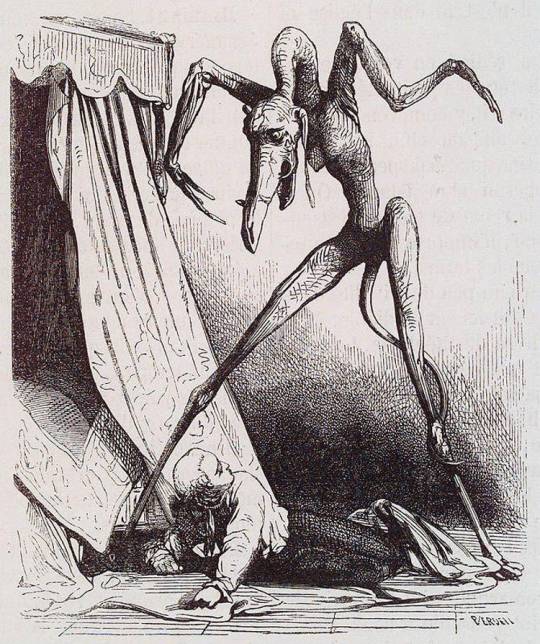
Succubi Can Be Summoned Through Physical Devotion
Succubi Can Be Summoned ... is listed (or ranked) 1 on the list How To Summon A Succubus, If You're Into That Sort Of Thing

Photo: Louis Le Breton/Wikimedia Commons/Public Domain
Succubi are often thought of as very sensual demons, and rituals can be used to play into that aspect of their nature. Setting the mood with candles, incense and the like puts the summoner in the right head space, which is almost always a great first step.
Tenderly anoint the body with oils while imagining a succubus to draw the demon in. After that, just start moving while thinking about intercourse. It can feel silly at first, but apparently spirits like a little tease. After all that, it's a good idea to ask the succubus for a nocturnal visit, then go to sleep and dream of her - making sure not to finish beforehand.
Visualization Spells Can Summon A Partial Manifestation
Visualization Spells Can... is listed (or ranked) 2 on the list How To Summon A Succubus, If You're Into That Sort Of Thing
Photo: Sebastian Münster/Wikimedia Commons/Public Domain
Protection is of the utmost importance when summoning a succubus. Laying out an insulating circle of white chalk or thread can go a long way in preventing unwanted possessions. Additionally, three to five black candles spaced equidistant around the circle can be used to augment the protective magic.
Once you feel secure, lay inside the circle with your limbs splayed and focus on relaxation and centering. Feel the comfort of the circle, then visualize it becoming a gateway the demon can enter through. If done properly, a manifestation willing to socialize should appear.
Before Diving In, Consider The Implicit Risk Of Summoning A Succubus
Before Diving In, Consid... is listed (or ranked) 3 on the list How To Summon A Succubus, If You're Into That Sort Of Thing
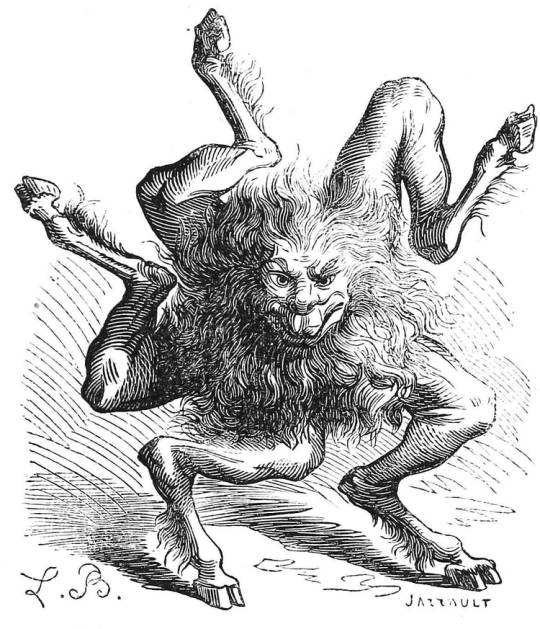
Photo: Louis Le Breton/Wikimedia Commons/Public Domain
Encyclopedia Satanica describes a succubus as a young woman with avian or reptilian features and, possibly, cloven hoofs. Perhaps most disconcerting is that a succubus's private area reportedly feels like a cavern of ice, and their purpose is supposedly to take the seed of young men and return it to incubi, their demonic male analogs.
For people summoning a succubus to hassle an enemy or for some demonic conversations, that's probably not a problem. For those with more adult thoughts on their mind, a succubus may not be the best companion.
Writing A Letter To Lillith Can Convince Her To Send One Of Her Daughters
Writing A Letter To Lill... is listed (or ranked) 4 on the list How To Summon A Succubus, If You're Into That Sort Of Thing

Photo: Richard Westall/Wikimedia Commons/Public Domain
Lilith is a figure in Jewish folklore who is believed to have been Adam's first wife. Long story short, things didn't work out, and she gave birth to a ton of kids. Those kids are believed by some to be succubi.
Writing a letter to Lilith and signing it with your full name and a bit of blood may very well convince her to put in a good word for you with one of her daughters. Be earnest and respectful, and when the letter is finished burn it with a candle. Relax, sit with the candle for 30 minutes, and hope Lilith is impressed.

Proceed With The Ritual Slowly And Steadily
Proceed With The Ritual Slowly is listed (or ranked) 5 on the list How To Summon A Succubus, If You're Into That Sort Of Thing
Photo: Dante Gabriel Rossetti/Wikimedia Commons/Public Domain
Knowing succubi are possibly evil demons hellbent on sucking the life force out of whomever summons them, it's important to take all the proper precautions before entering into any sort of relationship with one. Some recommend meditation, or at the very least introspection as to how a succubus might improve one's life in a way easier methods cannot.
After putting some thought into that question, it's important to build a relationship with a summoned succubus slowly. Spend time getting to know them over multiple interview sessions, and always take proper precautions. Divination tools can be used to make this part of the process easier. These interviews may show you succubi aren't quite what they seem, as spirits don't always fall into clear-cut categories.

Black Mirror Scrying Can Show A Glimpse Of A Demoness
Black Mirror Scrying Can Show is listed (or ranked) 6 on the list How To Summon A Succubus, If You're Into That Sort Of Thing
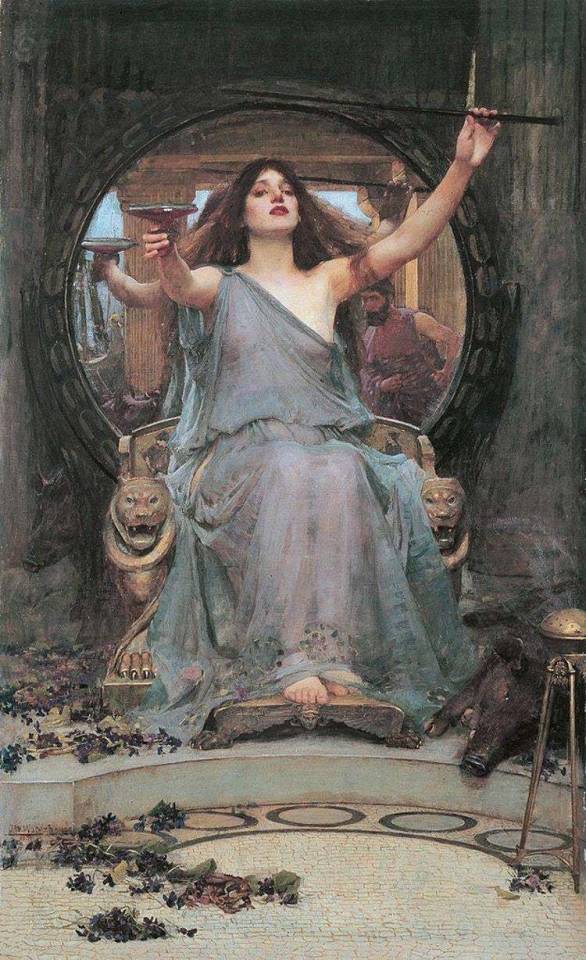
Photo: John Collier/Wikimedia Commons/Public Domain
On a physical level, black mirrors are exactly what they sound like - a reflective surface colored black via natural or artificial methods. Black mirrors are used in certain esoteric circles to scry (or divine the future via a reflective object like a mirror or crystal ball).
When using a black mirror to speak with a succubus, the ritual is fairly straightforward. Place a candle between the seer and the mirror then begin focusing on the reflection of the flame. Call out to Lilith - or any other succubus - and respectfully ask to communicate. If the flame stays calm, it's okay to continue scrying, but if it goes wild, it's best to apologize to the entity and cover the mirror, taking care not to break it in the process.
It's important to note this is the last step wherein it's considered safe to end the ritual; once a succubus decides to pick up the line, it's usually rude to hang up.
Pendulum Divination Can Be Used To Communicate With All Manner Of Spirits
Pendulum Divination Can Be Use is listed (or ranked) 7 on the list How To Summon A Succubus, If You're Into That Sort Of Thing
Photo: John William Waterhouse/Wikimedia Commons/Public Domain
A pendulum is a popular divination tool created by suspending a weighted object from a cord and interpreting the direction of its swing. It is commonly used to answer yes/no questions by associating direction with certain answers. However, other methods use a pendulum to produce words.
Write the numbers 1-24 in a semicircle on a piece of paper. On a separate sheet of paper randomly assign each number a letter value, then do your best to forget what they correspond to. This is to prevent any subconscious cheating that could arise from swinging the pendulum towards the answers you want to hear. Ask for a succubus's presence and explain the communication game to her, then see if she wants to play.
If the pendulum swings yes, begin asking questions, making sure to keep track of the numbers struck and asking if the word is finished between each letter.
When In Doubt, Dream Up A Personalized Succubus Summoning Ritual
When In Doubt, Dream Up A Pers is listed (or ranked) 8 on the list How To Summon A Succubus, If You're Into That Sort Of Thing

Photo: Dguendel/Wikimedia Commons/CC BY 4.0
Research is the most important step to creating a personalized summoning ritual. It's impossible to call up a friend without knowing their number, and the same can be said for succub. Once the exact type of spirit is chosen, it's important to figure out what to ask of them. Without a set goal and request, chances are the ritual will fizzle out like most conversations with random strangers.
On top of that, it's crucial you come up with a way to dismiss the spirit once it's summoned, as nobody needs a demon in their bedroom all day. After those three requirements are met, the rest is just set-dressing. Bring in candles, incense, or a blood sacrifice, whatever feels right for the type of spirit you're hoping to attract. Make the ritual as personal as possible to really feel a connection.
Candle Magic Can Describe The Terms And Aspects Of The Succubus
Candle Magic Can Describe The is listed (or ranked) 9 on the list How To Summon A Succubus, If You're Into That Sort Of Thing

Photo: Godfried Schalcken/Wikimedia Commons/Public Domain
Candle magic is a versatile technique used by many witches to cast spells. It involves inscribing or anointing a candle and burning it while focusing on the intent of the spell. To summon a succubus, all one has to do is inscribe a candle - a black candle is reportedly best - with the various aspects they're looking for in a demon.
Almost any feature can be written on the candle. It's even possible to describe a length of time - such as 40 minutes or seven days - that the succubus is allowed to materialize. Once the candle is inscribed, simply light it and focus on your desire, calling out to the succubus to appear at its discretion.
Succubi Are Easily Summoned Through Lucid Dreaming
Succubi Are Easily Summoned Th is listed (or ranked) 10 on the list How To Summon A Succubus, If You're Into That Sort Of Thing
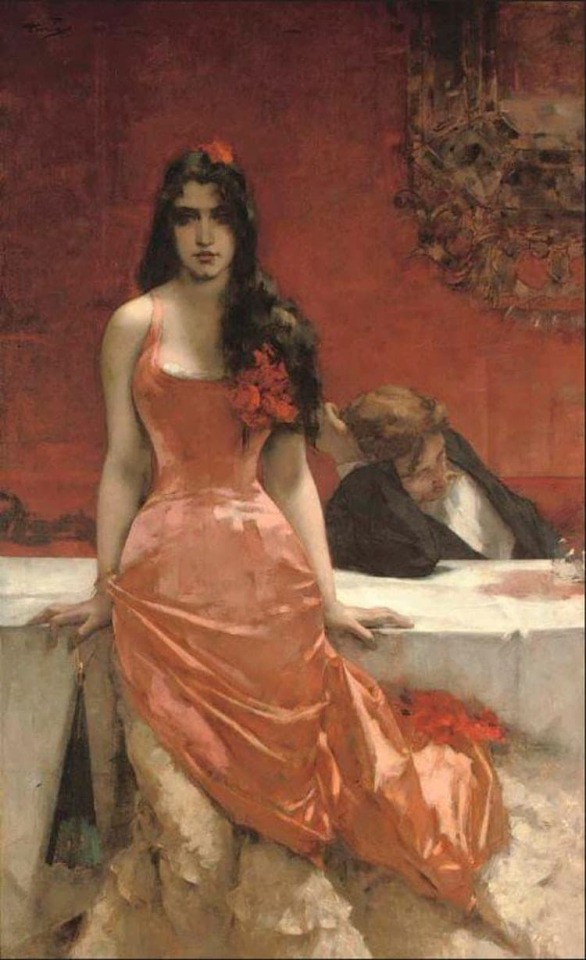
Photo: Charles Hermans/Wikimedia Commons/Public Domain
Lucid dreaming involves training the body to become aware of itself while asleep. This allows the dreamer to take control of the dream, manipulating it to their will. Once you're in control of your own dream, you can do pretty much anything, including summoning a succubus and interacting with her.
Unfortunately, lucid dreaming takes quite a bit of training and it's a long path to full control, though there are some methods that speed up the process. One of the most common training techniques is the wake induced lucid dreaming (WILD) method. This involves keeping the mind active while the body falls asleep. To achieve this, people commonly think of math problems, intricate daydreams, or poems to keep their minds going even as they sink into slumber.
It usually takes quite a few tries to cross the hypnogogic state, but eventually, it should usher the dreamer into sleep without losing their self-awareness. Once dreaming, the only thing left to do is call out to a succubus.
According To Some Sects Of Christianity, Succubi Can Be Summoned Via Hedonism
According To Some Sects Of Chr is listed (or ranked) 11 on the list How To Summon A Succubus, If You're Into That Sort Of Thing
Photo: John William Waterhouse/Wikimedia Commons/Public Domain
According to some tracts of Christian thought, succubi are demons summoned by all forms of sensual impropriety. That means summoning one could be as simple as pleasuring yourself, being intimate out of wedlock, or even looking at explicit images.
This paints a particularly metaphorical picture of the succubus, but remains a valid summoning tool all the same. Combining these methods with others, such as scrying and divination, may even provide more concrete results. When the need to banish such a spirit arises, simply call out to Jesus and cease whatever you're doing. CREDIT: https://m.ranker.com/list/how-to-summon-a-succubus/joesph-langdon
2 notes
·
View notes
Text
Life of Rossetti: Rossetti’s Early career
Rossetti had over fifty written poems by the age of sixteen. In 1847 she would make her unofficial literary debut as her grandfather Polidori privately printed a collection of her poems, which she titled “Verses”. This collection would be shared among her friends and family who would give it a good reception. Throughout the fifties, various poems of hers would be published in anthologies. In 1861 her brother Dante Gabriel sent “Goblin Market“ to an art critic by the name of John Ruskin in the hope that it would get recommend an editor of The Cornhill. However, Ruskin would deny Dante Gabriel and critic Rossetti’s work for being, “unpublishable because it was ‘so full of quaintnesses and offenses” (Poetry Foundation). It wouldn’t be until 1862 however, that Rossetti’s poetry would be commercially published as “Goblin Market and Other Poems”. It would be a critical success. Being praised for Rossetti’s freshness and originality.
next post!
Works Cited:
“Christina Rossetti.” Poetry Foundation, Poetry Foundation, www.poetryfoundation.org/poets/christina-rossetti.
0 notes
Text
Pre - Raphaelites
Pre-Raphaelite Brotherhood, group of young British painters who banded together in 1848 in reaction against what they conceived to be the unimaginative and artificial historical painting of the Royal Academy and who purportedly sought to express a new moral seriousness and sincerity in their works. They were inspired by Italian art of the 14th and 15th centuries, and their adoption of the name Pre-Raphaelite expressed their admiration for what they saw as the direct and uncomplicated depiction of nature typical of Italian painting before the High Renaissance and, particularly, before the time of Raphael.
Back then most people thought the best painter of all time was the Italian painter Raphael. Raphael was painting nearly 400 years before the Pre-Raphaelites. He liked creating epic religious paintings of Jesus’s life. Raphael imagined these scenes to be very beautiful. The Pre-Raphaelites didn’t like this and wanted to paint what they knew. This is how they got their name. It literally means before Raphael.
The Creation of Eve from Adam (c. 1499), by Raphael. Raphael did some beautiful artwork but I can see the difference between his artwork and the artwork from the Pre-Raphaelite Brotherhood.
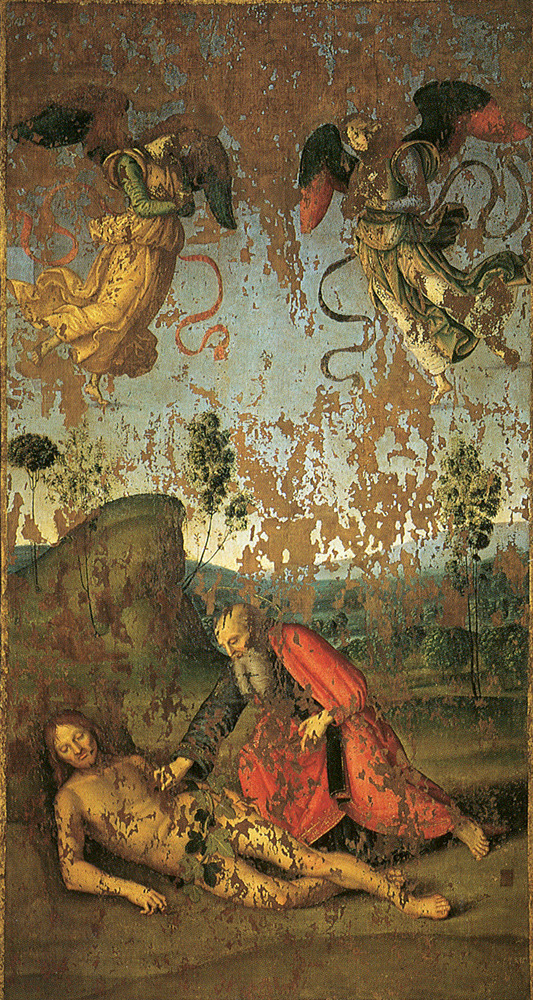
Resurrection of Christ (1499–1502), by Raphael
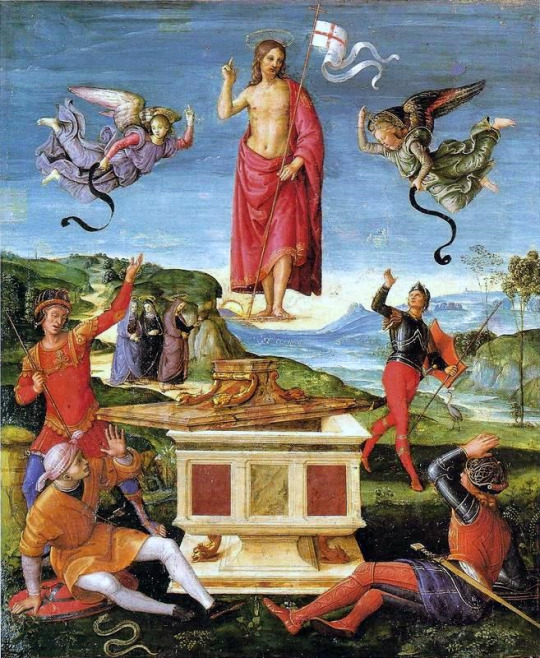
The Brotherhood was formed by three Royal Academy students: Dante Gabriel Rossetti, who was a gifted poet as well as a painter, William Holman Hunt, and John Everett Millais, all under 25 years of age. The painter James Collinson, the painter and critic F.G. Stephens, the sculptor Thomas Woolner, and the critic William Michael Rossetti (Dante Gabriel’s brother) joined them by invitation. The painters William Dyce and Ford Madox Brown, who acted in part as mentors to the younger men, came to adapt their own work to the Pre-Raphaelite style.
Their pictures of religious and medieval subjects strove to revive the deep religious feeling and naive, unadorned directness of 15th-century Florentine and Sienese painting. The style that Hunt and Millais evolved featured sharp and brilliant lighting, a clear atmosphere, and a near-photographic reproduction of minute details. They also frequently introduced a private poetic symbolism into their representations of biblical subjects and medieval literary themes. Rossetti’s work differed from that of the others in its more arcane aesthetic and in the artist’s general lack of interest in copying the precise appearance of objects in nature. Vitality and freshness of vision are the most admirable qualities of these early Pre-Raphaelite paintings.
Some of the founding members exhibited their first works anonymously, signing their paintings with the monogram PRB. When their identity and youth were discovered in 1850, their work was harshly criticized by the novelist Charles Dickens, among others, not only for its disregard of academic ideals of beauty but also for its apparent irreverence in treating religious themes with an uncompromising realism. Nevertheless, the leading art critic of the day, John Ruskin, stoutly defended Pre-Raphaelite art, and the members of the group were never without patrons.
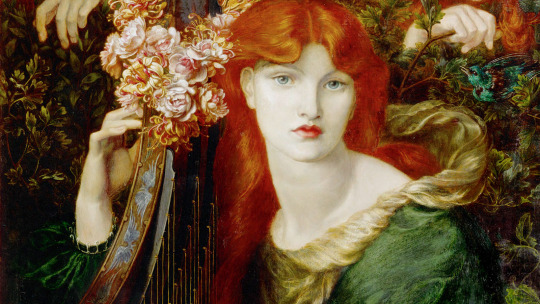
I have attached quite a lot of paintings in this post because I think those paintings are extremely beautiful! I love the style and the atmospheric feeling!
Holman Hunt is one of the founders of the Pre- Raphaelite Brotherhood. His paintings were notable for their great attention to detail, vivid colour, and elaborate symbolism. The painting below is painted by him and is called The Hireling Shepherd (1851)
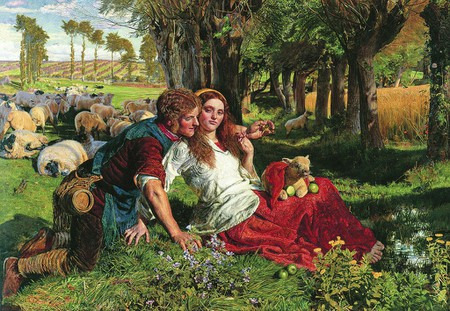
May Morning on Magdalen Tower (1890), also painted by Holman Hunt.
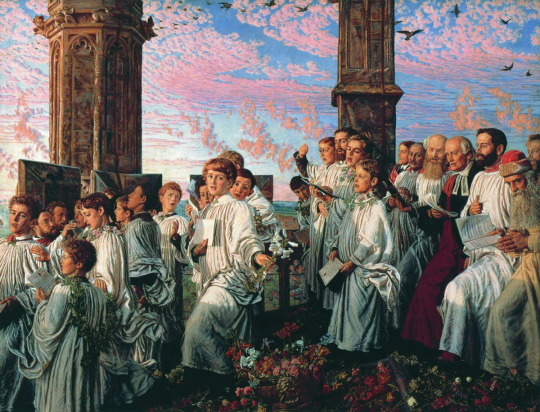
This painting here is called The Lady Of Shalott (1888) and was painted by John William Waterhouse who worked first in the academic style and then joined the pre - raphaelites. I really like his artworks!
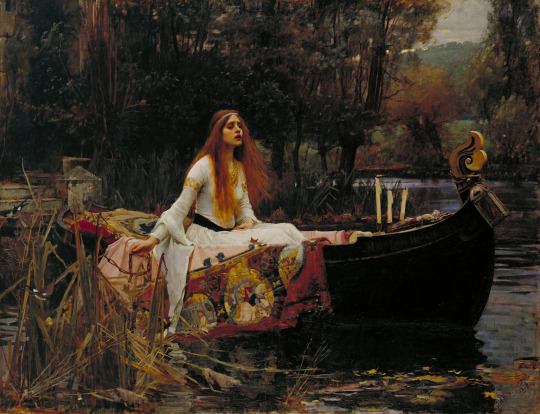
Ophelia (1889), also painted by John William Waterhouse

0 notes
Text
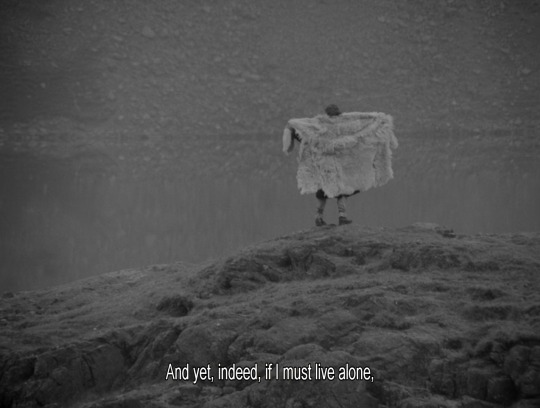
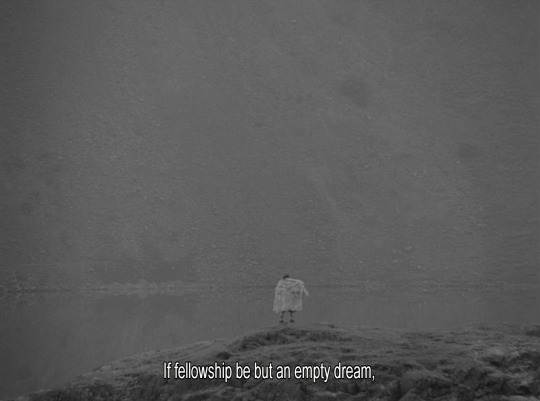
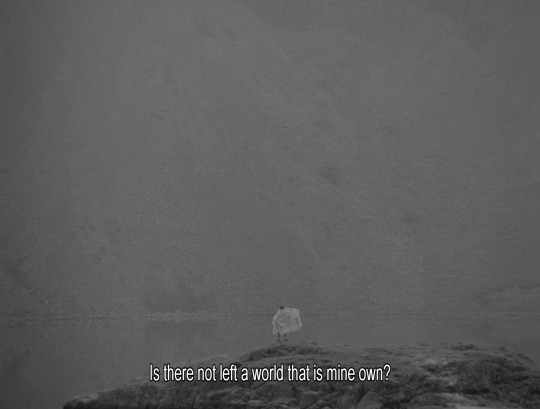
Dante’s Inferno (1967)
24 notes
·
View notes
Text
Poldark returns: Aidan Turner on nudity, being single and why he's a technophobe

As the famously ripped and glowering Cornish copper miner, Aidan Turner has put the sex back into Sunday nights. Over a large vodka, he talks about getting naked, those pecs and playing Poldark
Just before I am due to interview Aidan Turner, his PR sends me an email to let me know that he has grown a beard – presumably in case I fail to recognise the actor fully clothed or not wearing a tricorn hat.
Poor old Turner is so defined by that scything scene that he likes to grow his beard when not committed to playing Ross Poldark – which doesn’t happen very often, given the BBC has just commissioned a fourth series and Turner says they are all tied in for five.
‘I’m not a big fan of shaving,’ he explains to me when I finally find him – fully clothed in a bomber jacket, T-shirt and jeans, minus tricorn, hiding in the corner of a dimly lit hotel bar in Mayfair. ‘It sucks. What’s the point? What is the point?’ I mention something about it being uncomfortable to be on the receiving end of a man with a beard.

‘Oh yeah,’ he smiles sympathetically. ‘I can’t imagine it’s a lot of fun for you guys. But not shaving works lovely. I can walk into the street and literally nobody [will recognise me], which is kind of cool. It’s nice for me.’ He doesn’t seem to have noticed the two well-to-do women at the other end of the bar, trying hard not to gawp into their martinis. Perhaps he has simply grown used to it.
I have interviewed Turner before, about a year and a half ago, and that day we met in a similarly murky venue, an underground restaurant in Bristol, him arriving with a beanie hat pulled down low over his forehead. The sense I got then was of a man acutely embarrassed by attention, a regular guy from Dublin who happened to have acted standing in a field with his top off because, as he puts it, that’s just how chaps used to scythe back in the day.
‘It [the “nudity”] has always made sense. The bathtub thing,’ he says, referring to the scene in series two where Demelza kisses her naked husband in a tin bath, ‘I mean, I can’t be wearing a T-shirt in it, can I?’
By the time he got round to shooting the 2015 adaptation of Agatha Christie’s And Then There Were None, in which he stood with a towel draped perilously low on his hip bone, he had begun to have fun with the whole objectification thing. ‘That was my fault. The towel was initially up quite high and then I said, “That’s not going to work. Why don’t we put it down a little bit because it just doesn’t feel comfortable.” And then when they weren’t looking I pulled it down and it looked ridiculous but…’ He starts to laugh.
Is there a similar standout scene in the third series of Poldark? ‘I think there might be one scene, but by then I had probably put on a bit of weight. I don’t think I was ripped for it. It was towards the end of the shoot and I didn’t bother. For the last month I didn’t hit the gym at all, I was just too busy. And then we had some scenes in the bedroom. There’s one where I’m lying down talking to Demelza and the towel is up here,’ he motions to just above his waist, ‘so I pull it down a little bit.
‘I thought it was funny and on that day Eleanor [Tomlinson, who plays Demelza] was laughing. I went “a little bit more, a little bit more”. I was joking around and thought it would look OK. And then recently they showed us the clip and it’s very much not OK. I am not in shape at all.’ I am pretty sure that the ladies across the bar would agree with me when I say that this is in no way true.
The 33-year-old seems genuinely perplexed by the fuss caused by his body. ‘I’ve never got it. You watch Game of Thrones and other shows, it’s constant sex. It’s not like we’re doing crunches and then trying to find a reason to get topless. Maybe because it’s a newer version of a show that happened in the 1970s? Maybe it seems racier? I have trouble joining the dots in my head.’
Why does Turner think that the travails of an 18th-century Cornish copper miner are so enduring? ‘Well, that’s a tough one. If you could sort of bottle what it is that makes a show work… I don’t know.
It’s always surprised me, Poldark. When we were shooting The Hobbit, we knew a lot of people were going to watch it. But with a show like this we weren’t aware of it. It was sort of a shock for everyone. And it’s continually surprising. We did a thing at the BFI last week, and it was mad, the amount of fans who showed up. It was a bit of a frenzy. And it’s not the demographic that I thought it would be. It was young people.’
If I’m not working I’m having to go to the gym because you have to look a certain way and I can’t afford to get, like… bald and fat'
What demographic was he expecting? ‘You know, anything from 40 up.’ Forty isn’t that old, I say. ‘No, no, not at all. You said old. I said demographic. There were a load of young girls and lads and it just kind of surprised me.’ He thinks part of the show’s success is that ‘aesthetically, it doesn’t look like a lot of other British shows. It’s quite calming because of the Cornish setting. And the stories still stand up. Those things that Winston Graham wrote, they still seem to ring true for people.’
The book that the team are working from for series four features a significantly older Poldark. ‘I’m not going to age up for it. Grey hairs and that,’ he shakes his head. ‘No way! I’ll go grey in my own time. It’s happening anyway.’ Again, we agree to disagree.
In interviews, Turner often comes across as cagey on account of his reluctance to discuss certain topics, such as his love life or whether he will be the next James Bond. In reality I think he is just a bit shy and politely insecure, and keen not to rock the boat too much (he tells me he once said something in an interview about what his brother did for a living, which upset his sibling).
On the subject of Bond, he simply thinks it’s rude to discuss a role that someone is already signed up for. ‘Imagine if somebody was talking about a show that I was doing and the possibilities of replacing me.’ He looks aghast. ‘I just don’t think it’s cool to do that. It seems slightly unkind and a little disrespectful and a bit weird, so that’s why I’ve never wanted to speak about it.’
What do we know about Turner? Born in Dublin to a shop worker and an electrician, he was a ballroom dancer as a child and worked briefly with his dad before deciding, aged 17, to enrol at the Gaiety School of Acting. He graduated in 2004 and immediately started working in theatre, before landing in television via the Irish soap The Clinic.
There was an uncredited role in The Tudors, and then cult success as Dante Gabriel Rossetti in the BBC’s Desperate Romantics, and as a vampire in BBC Three’s hit Being Human.
This led to a short period of typecasting, though not altogether unwelcome typecasting, given that it involved roles in a couple of Hollywood blockbusters: as the dwarf Kili in the Hobbit films, and then as a shadowhunter-turned-werewolf in The Mortal Instruments: City of Bones.
Turner loves collecting art, does a bit of painting himself, and has just bought a house in east London (‘I’ve got a big back garden!’ he beams, before his face turns to concern. ‘I don’t know what I’m going to do with that’). For all his handsome ruggedness, I find him quite boyish, sweet even. He shows me pictures of himself at the christening of his first godchild, the baby of his best friend.
‘You can put this in the interview. He’d love that. I’m a very proud godfather. His name is Luca. I have no business in churches at all – I thought I was going to melt when I walked through the door – but it was amazing.’
Turner spends so much time dashing around the place for work that he sometimes forgets what day it is, so being able to go home for the christening felt like a real boon. ‘It’s Friday, isn’t it?’ he says, about halfway through our interview. ‘We could have a drink.’
We order large vodka sodas and head outside to smoke his cigarettes, where he tells me about how much he loves watching boxing and mixed martial arts (MMA). Does he box himself? ‘I’ve done a little bit on the bag when I’m training and stuff. But I can’t spar. Can’t hurt the face,’ he says, a hint of cheekiness in his voice. ‘The face is the business, isn’t it?’
I think his reluctance to give too much away means that sometimes people confuse him with Poldark. Ross is… quite moody, I say. ‘Yeah. You can just say it. He’s a bit of a grump. He’s a bit of an arse. I hope that doesn’t run too deep. I like to think I don’t bring him home from set every day.’
Turner broke up with his last long-term girlfriend, the actress Sarah Greene, two years ago, and has since been photographed snogging a couple of beautiful brunettes, but claims he isn’t dating anyone at the moment. ‘Nobody, actually, as it stands. It’s not like I’m crazy private about things, or that I’m being difficult. I just find it makes the job a bit difficult, because I want to be able to fool people that I’m somebody else.’
He sits and ponders this for a bit. ‘If I was, and this might be a bad example, but if I was a musician or a singer-songwriter it might make more sense to know the person better, because you’re investing in them musically and lyrically. But as an actor I have to change masks so many times and allowing people in isn’t very beneficial. I don’t want people to figure me out – certainly not people I haven’t met and I don’t know.’
In an age of social media-savvy celebrities, he is an anomaly. He is not on Twitter or Facebook or Instagram. ‘I’m all for open talk when it’s a room full of friends or people you trust. But I don’t like the idea of having a platform where I would have to read comments from people I don’t know. Do you know what I mean?’ I do.
‘I see no advantages from something like that. It would only aggravate me, and I might respond and I might say things that are unkind. So apart from the fact that it gets me out of a lot of trouble, I don’t feel the desire or the necessity for it. I’m barely coping with this.’
He holds up his iPhone. ‘Emails and text messages… I’m terrible at that kind of thing. It’s phone calls that I’m better at. I don’t screen calls. I pick up, and then we have a chat. People tend to drift out of my head when they’re not around.’ That’s such a male way to be, I say. He laughs, sips some more of his vodka and soda.
The towel was initially up quite high and then I said, 'Why don’t we put it down a little bit.'
I don’t think that Aidan Turner is difficult. I think he’s just a bloke from Dublin who has found himself in an unusual set of circumstances that happen to include the need occasionally to take his shirt off for work.
‘I just have this weird feeling knowing that people who don’t know me are reading private things about me. There’s something quite unnatural about that, to walk down the street and somebody knows who my favourite musician is.’
Who is his favourite musician? He laughs. ‘Nick Cave. I’m liking the Gorillaz at the moment.’ He says that his life is ‘quite dull’. I raise my eyebrows at him.
‘It is! It really is. Obviously having a good time is important, being able to relax, but the work is kind of intense and if I’m not working I’m having to go to the gym because you have to look a certain way and I can’t afford to get, like…’ Fat? ‘Yes, bald and fat.’
Is he looking forward to that, I wonder. To the day when he can be interviewed and not asked about his torso? He drains his drink, grins hard. ‘Oh, I can’t wait.’
May 19, 2017 the Telegraph Byrony Gordon
Sorry, I didn't add all pictures! Tumblr and iPad didn't like it!
211 notes
·
View notes